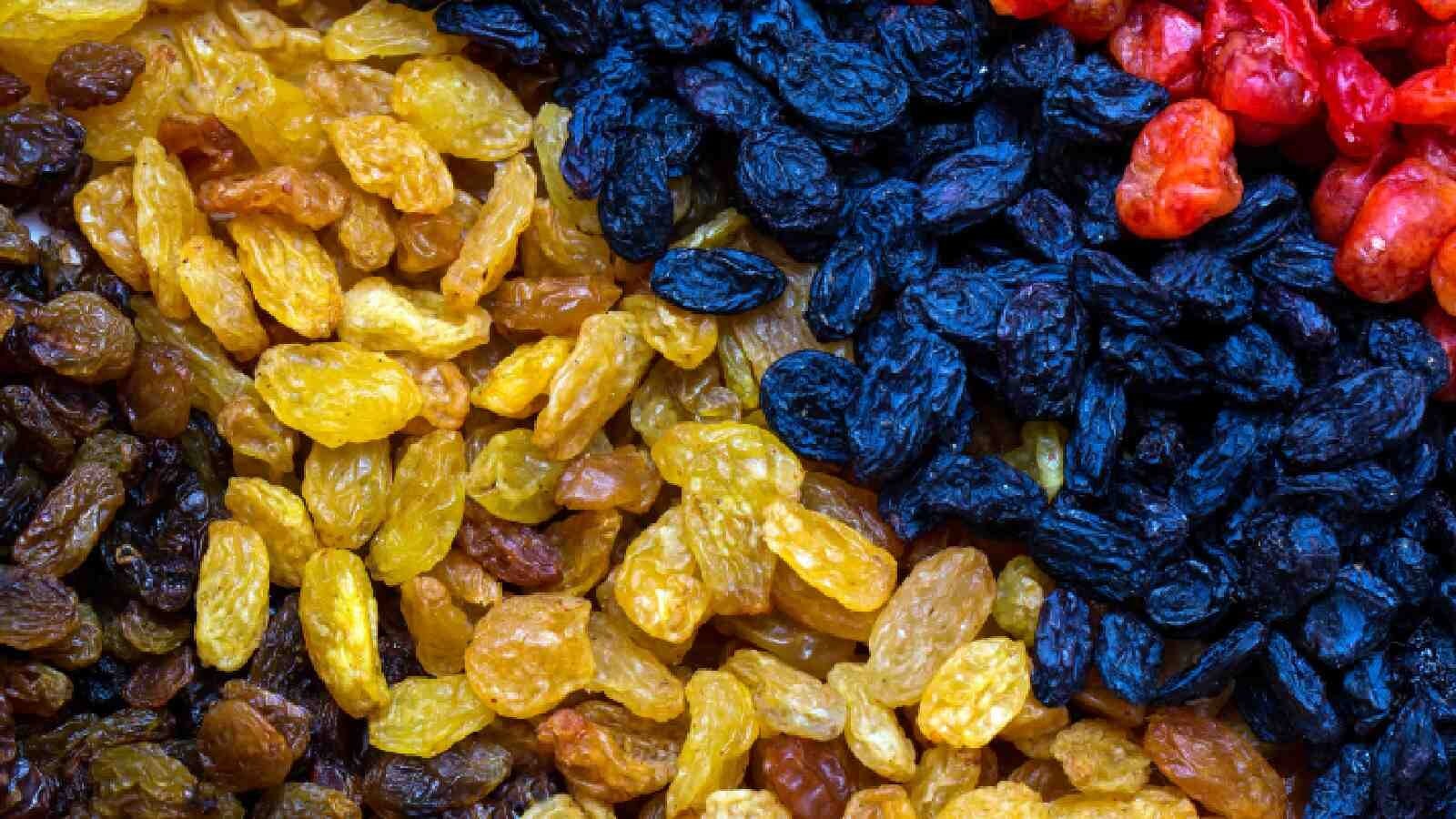
Raisins, dried grapes, are a nutrient-dense snack with a variety of health benefits. Though small in size, raisins pack a powerful punch when it comes to nutrition and can contribute positively to overall health. Here’s a look at the key health benefits of including raisins in your diet:
1. Rich in Antioxidants
Raisins are loaded with antioxidants, such as flavonoids, phenolic acids, and tannins. These compounds help neutralize free radicals in the body, which can reduce oxidative stress and protect against chronic diseases such as cancer and heart disease.
2. Improves Digestive Health
Raisins contain both soluble and insoluble fibers. The soluble fiber absorbs water and softens stools, preventing constipation. Insoluble fiber helps bulk up stool, promoting regular bowel movements and improving digestive health. The fiber content also aids in reducing bloating and discomfort.
3. Heart Health
Raisins are naturally cholesterol-free and low in fat, making them heart-friendly. Additionally, they contain potassium, which helps regulate blood pressure by balancing sodium levels in the body. Studies suggest that raisins may lower bad cholesterol (LDL) levels and reduce the risk of heart disease.
4. Boosts Energy
Raisins are an excellent source of natural sugars like glucose and fructose, providing a quick energy boost. They’re a perfect pre-workout snack or a way to fight fatigue during a busy day without spiking blood sugar levels drastically.
5. Strengthens Bones
Raisins contain calcium and boron, both of which are important for maintaining healthy bones. Boron is especially beneficial in helping the body absorb calcium and forming stronger bones, which is crucial for preventing osteoporosis.
6. Improves Oral Health
Though raisins are sweet, they contain phytochemicals that suppress the growth of bacteria in the mouth responsible for cavities and gum disease. The oleanolic acid in raisins fights against tooth decay, making them a better snack choice for oral health compared to other sugary treats.
7. Regulates Blood Sugar Levels
Despite being sweet, raisins have a low to moderate glycemic index, meaning they don’t cause rapid spikes in blood sugar levels. The fiber content in raisins slows down the absorption of sugars, making them a suitable snack for people with diabetes when consumed in moderation.
8. Supports Weight Management
The high fiber content in raisins promotes a feeling of fullness, reducing hunger and preventing overeating. While they are calorie-dense, the energy-boosting and appetite-controlling properties of raisins can support weight management when eaten in small portions.
9. Enhances Skin Health
Raisins are rich in antioxidants and essential vitamins like vitamin C and B-complex, which are vital for maintaining healthy, glowing skin. They help in combating premature aging by protecting the skin from free radical damage and boosting collagen production.
10. Helps with Iron Deficiency
Raisins are a good source of iron, a mineral essential for producing hemoglobin. Including raisins in your diet can help prevent anemia, improve energy levels, and combat fatigue. They are particularly beneficial for people with low iron levels, such as vegetarians and pregnant women.
Conclusion
Raisins are a convenient and nutritious snack with numerous health benefits, from promoting digestive health to supporting heart function and bone strength. Despite their sweetness, they provide essential nutrients like antioxidants, fiber, potassium, and iron. Adding raisins to your daily diet can contribute to long-term health and wellness, but it’s important to consume them in moderation due to their high-calorie content.










